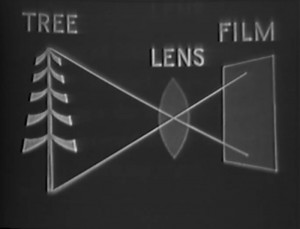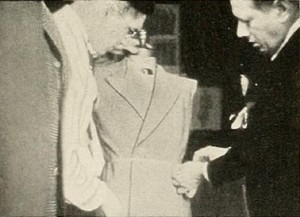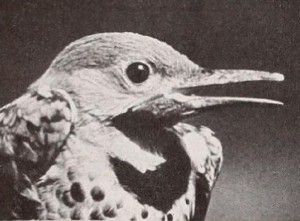"Edited film created by Frank L. Kreznar, an award winning amateur filmmaker, with assistance from his wife during a guided tour of the Soviet Union in 1965. Film consists of footage of Moscow and Leningrad mainly of public places with a special emphasis on historically important buildings. Throughout the footage Kreznar shows modern apartment buildings as they are being constructed, with his commentary discussing the Soviets’ efforts to modernize the territories under their control and the recent population growth in these cities. Kreznar is also interested in the modes of public transportation in each city – such as street cars or the metro in Moscow. Kreznar notes that most automobile production in the Soviet Union focuses on trucks for work while cars are considered a rare luxury for private citizens. He also discusses the high volume of pedestrian traffic. Kreznar also takes an interest in religion in this footage, showing churches in disrepair or having been de-sanctified and converted into housing, museums, or other government administrated buildings. Kreznar notes that this is due to the Soviet government’s anti-religious policy, but he also shows some churches under recently started restoration due to the government’s realization of the touristic value of these sites. Film includes occasional shots of people working, mainly in outdoor produce markets. Women are shown doing road construction in Moscow as well as various public parks, swimming pools, and other public recreation areas, with a special emphasis on how the Soviet government has given children places to play," Human Studies Film Archives, Smithsonian Museum.

"On use of camera lenses to produce desired photographic effect. Demonstrates functions of different lenses." National Archives.
Later reworked as Meditation in the Hills (Richard H. Jobson, 1952), winner of Amateur Cine World 3-Star Award in 1953 Ten Best Competition, UK.

"Kendall T. Greenwood has told an interesting and uniformly attractive story of one of America's great integrated industries in Let Your Body Breathe. From the original Goodall Company plant in Sanford, Maine, to the elaborate retailing methods of the present day, the film presents a clear cut picture of Palm Beach cloth and its part in the modern pattern of warm weather living. Designed primarily for use within the trade, Let Your Body Breathe shows the retailer all the important points in the manufacture of this fabric, its tailoring by the parent company into suits and sportswear and the continued control over the product, even to such details as proper laundering or cleaning. Mr. Greenwood's camera work is crisp, his editing incisive, while the narrative contributes judiciously to an able industrial record." Movie Makers, Dec. 1941, 568.
"Canada 1960." UCLA Film & Television Archive.
"Film documenting the joy Turner found while restoring his 1917 Henderson motorcycle which he describes in a letter to the original owner, Frank. Film also shows scenes of the Salt Lake Valley and shows Turner riding the bike in a parade." Church History Library.

"Henry E. Hird offers the framework of a timely continuity plan for a scientific record in A Letter. A naturalist father writes a film letter to his sailor son who shares the father's scientific interest in bird and insect life, as well as in floral beauty. We see the father writing and the son reading a letter, the information in which is brought to life in film. Mr. Hird is a very capable observer and movie maker, and the combination of these abilities has enabled him to offer, in this informal style, a wealth of information. Extraordinary sequences of nesting birds are included." Movie Makers, Dec. 1943, 477.
Total Pages: 299